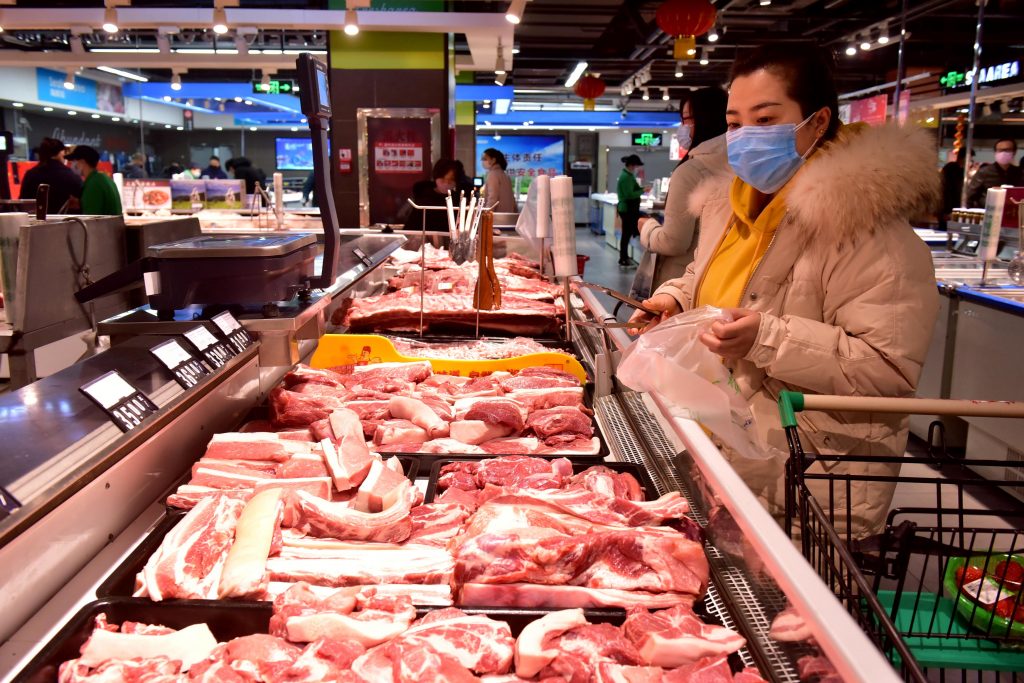São Paulo – Strong foreign demand for beef was one of the drivers of results for Brazil’s Minerva Foods, the biggest meat exporting company in South America during Q2 this year. Exports accounted for 72% of gross revenues in Q2, up 16% year-on-year, executives told investors during an online conference this Wednesday morning (29).
Asia drove a hike in sales. The continent was responsible for 50% of total export revenues from Minerva’s units in Brazil during the quarter, up from 25% in Q2 2019. Sales to all other parts of the world dropped, including to the Middle East, which went from a 27% share from April to June 2019 to 9% this year. Sales also slowed to the Americas, the European Union and Africa. Exports to the Commonwealth of Independent States (CIS) went up. The NAFTA countries went from zero in Q2 2019 to 1% in Q2 2020.
“The volume previously shipped to the region was primarily diverted to meet demand from Asia,” read a Minerva report, in reference to the Middle East’s diminishing imports of product from Minerva in Brazil. China is the leading importer in Asia, but demand is buoying elsewhere in the continent as well.
“Export results attest to growing demand for beef in Asia – mostly in China, but also in other markets, like Indonesia and Malaysia. This trend is expected to persist in the quarters ahead,” Minerva CEO Fernando Galletti de Queiroz said during the conference. Asia was also the premier destination for the company’s Athena Foods units in Uruguay, Paraguay, Argentina and Colombia, having taken in 42% of foreign sales, down one percentage point year-on-year. The Middle East’s share climbed from 5% to 7%.
According to Queiroz, the foreign sales outlook remains highly advantageous. He mentioned the African swine flu outbreak, which is affecting pork production China and paving the way for Brazilian beef. Other factors include a shift in consumer habits in Southeast Asia stemming from urbanization, rising income and a growing middle class; meat availability issues in Australia, which competes with Brazil; and the impact of the pandemic in United States output. “More recently, we have seen problems with buffalo meat exports from India, which have created opportunities in several markets across Asia and the Middle East,” he said.
According to Minerva’s CEO, the scenario reflects greater openness to product from South American countries such as Brazil, Argentina, Paraguay, Colombia, and Uruguay. “New markets and new accreditations given to those countries are a reality,” said Queiroz. He mentioned the resumption of Brazilian beef imports to the United States, Russia’s accrediting of Colombian beef, Saudi Arabia’s embracing of product from Paraguay, Uruguay and Colombia, and the opening of Thailand to meat from Brazil.
External factors aside, Queiroz said the good results are reflective of work done by the company. “Our Q2 operating performance reflects not only a good moment for exports and strong international demand for beef, but also Minerva’s excellence in managing its operations,” he said. The company had a cash position of BRL 6.8 billion by the end of Q2. “This gives us peace of mind in light of the challenges facing us, and in line with our conservative approach to cash management.”
Minerva’s Q2 capacity utilization rates were 63% in Brazil, and 76% for its foreign Athena Foods units. Investor Relations director Edison Ticle said that the consolidated utilization rate was 70%, which is very close to being the new normal for as long as the Covid-19 pandemic lasts.
Minerva created a BRL 32 million emergency relief fund to help its small and medium clients in the industry withstand the pandemic. The cash will be made available in the form of loans with a 1-year grace period, low interest rates and protracted repayment.
The online conference also saw Minerva announce an innovation-oriented effort based on three pillars. The first pillar will involve development and management of statistical data and AI-assisted decision-making. The second pillar will be entail e-commerce and marketplace initiatives, in a bid to tap into opportunities, starting with Brazil, Argentina and Paraguay. The third pillar will be investment in startup businesses across the meat industry value chain, including in alternative protein sources, logistics, livestock farming, agri-tech and retail. As much as USD 30 million will be allocated to as many as 10 companies.
Translated by Gabriel Pomerancblum




